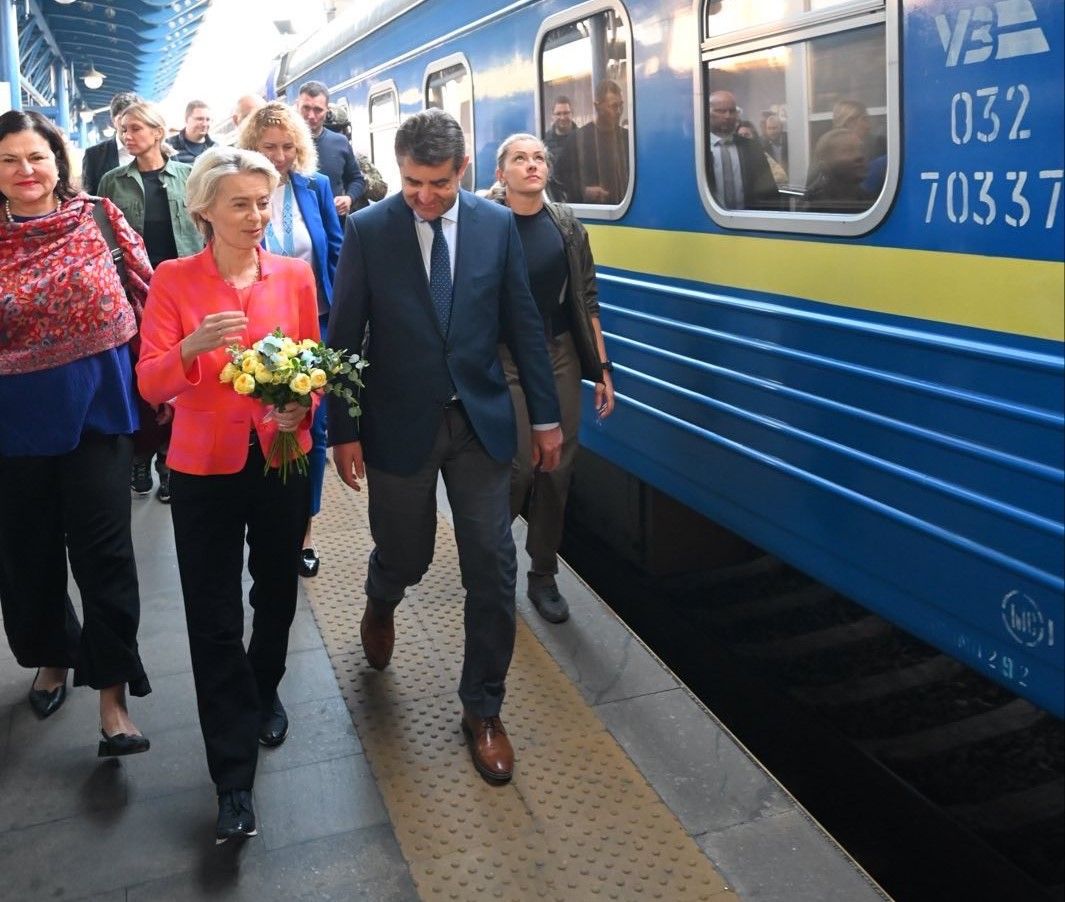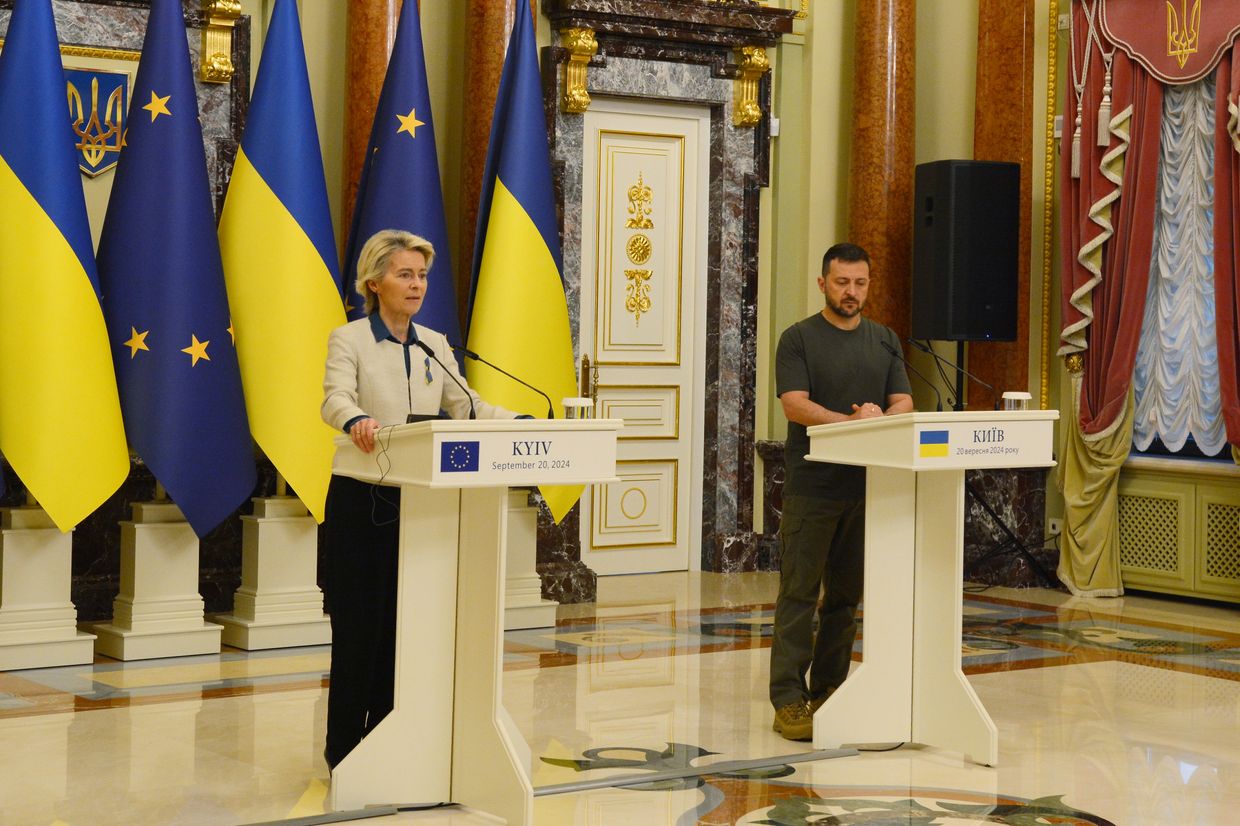Editor's note: The article was updated with statements by President Volodymyr Zelensky during a press conference in Kyiv.
European Commission President Ursula von der Leyen on Sept. 20 announced a loan of up to 35 billion euros ($39 billion) to Ukraine as part of a $50-billion pledge by the G7.
"Relentless Russian attacks means Ukraine needs continued EU support," the chief of the EU's executive arm said on X during her visit to Kyiv.
"The European Commission will provide a loan of up to 35 billion euros to Ukraine as part of the G7 pledge. This is another major EU contribution to Ukraine's recovery."
Von der Leyen arrived in Ukraine's capital earlier on Sept. 20 to discuss Europe's support in various areas "from winter preparedness to defense, to accession and progress on the G7 loans."
The G7 agreed in June to provide Ukraine with a loan of $50 billion by the end of the year, covered by proceeds from immobilized Russian assets.
Speaking alongside von der Leyen during a joint press conference, President Volodymyr Zelensky said that the 35 billion euros would be used for energy needs, bomb shelters, and defense purposes.
"We will spend these 35 billion primarily on energy, on defense, on bomb shelters for children in schools, kindergartens, and universities," Zelensky said.
Regarding defense purchases, the EU loan will be used mainly to purchase domestic-made long-range drones and missiles, but a part may be "spent on air defenses that are not produced in our country," the president added.
The EU's loan is "backed by the windfall profits from immobilized Russian assets" and "will flow straight into (Ukraine's) national budget," von der Leyen noted during the press conference.
The bulk of the G7's $50 billion loan was supposed to be equally covered by the EU and the U.S., with each of the two economic powerhouses shouldering $20 billion. Japan, the U.K., and Canada would jointly provide the remaining $10 billion.
This plan stands on shaky ground as the U.S. is reluctant to commit unless the EU extends the sanctions immobilizing Russian assets. Such a step requires a unanimous vote, which is currently being blocked by Hungary, the EU's most Kremlin-friendly member.
The Financial Times (FT) reported on Sept. 17 that the EU drafted plans to provide the loan with or without U.S. support, aiming to gather between 20 billion and 40 billion euros ($22.3-44.5 billion). The outlet commented on Sept. 20 that the sum of 35 billion euros is a compromise that will allow Washington to step in at a later date.
Ukraine is in dire need of such a financial injection as Russia targets the country's energy infrastructure with missiles and drones and presses its ground offensive in the east.
Previously, Zelensky thanked the G7 for the pledged $50 billion loan but also urged the creation of a mechanism for the full confiscation of $300 billion in frozen Russian funds. Roughly two-thirds are held at Belgium-based financial service company Euroclear.














